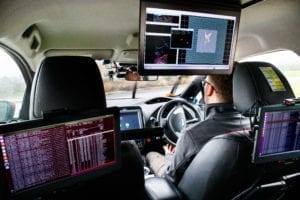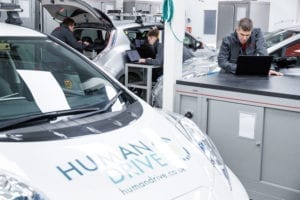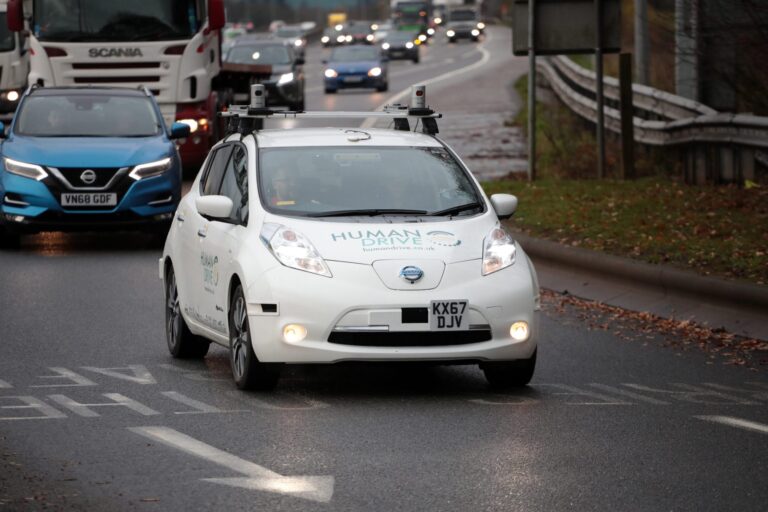A British-based autonomous vehicle research project has successfully completed a 230-mile (370km) self-navigated journey on UK roads.
The HumanDrive project is jointly funded by UK government through the Centre for Connected and Autonomous Vehicles (CCAV) and Innovate UK, and nine other consortium partners. The joint funding package for the project totalled £13.5m.
The research project completed two trials, a 230-mile self-navigated journey on UK roads – called Grand Drive – using advanced positioning technology, and a test track based activity that explored human-like driving using machine learning.
A key aspect of the project was to develop an advanced, autonomous vehicle control system capable of emulating “a natural, human-like driving style”.

Nissan Leaf test vehicles featured GPS, radar, lidar and camera technologies to make decisions about how to navigate roads and obstacles encountered on a journey.
The first element of the project was the Grand Drive from Cranfield in Bedfordshire to Sunderland.
The 230-mile journey included a range of driving scenarios to negotiate country lanes with no or minimal road markings, junctions, roundabouts and motorways.
The autonomous technology activated along the route to change lanes, merge and stop and start when necessary.
The successful completion of the journey represented the culmination of 30 months’ work by the HumanDrive consortium, which was led by Nissan engineers.
Bob Bateman, project manager for Nissan Technical Centre Europe, said: “The HumanDrive project allowed us to develop an autonomous vehicle that can tackle challenges encountered on UK roads that are unique to this part of the world, such as complex roundabouts and high-speed country lanes with no road markings, white lines or kerbs.”

The second part of the project looked at how machine-learning artificial intelligence technologies could enhance the user experience and passenger comfort of connected and autonomous vehicles.
Pilot vehicles tested on private tracks incorporated artificial intelligence systems developed by consortium member Hitachi Europe, which enable real-time machine-learning.
By building a dataset of previously encountered traffic scenarios and solutions, it can use this ‘learned experience’ to handle similar scenarios in future and plot a safe route around an obstacle.
According to the consortium, these technologies were subjected to a robust testing process and developed using a range of facilities, including simulation, hardware in the loop, private test tracks.
HumanDrive also focused on advancing cyber security features in autonomous vehicles, developing testing and safety methodologies for UK automated driving testing and investigating the implications of autonomous vehicles on the wider transport system.
HumanDrive project consortium members include the University of Leeds, Connected Places Catapult, Horiba MIRA, SBD Automotive, Cranfield University, Atkins, Aimsun, and Highways England.
 Want to learn more about the latest advances in autonomous vehicle technologies? CiTTi Exhibition takes place on the 3rd and 4th of June at Coventry’s Ricoh Arena. Register your interest to attend at www.cittiexhibition.co.uk
Want to learn more about the latest advances in autonomous vehicle technologies? CiTTi Exhibition takes place on the 3rd and 4th of June at Coventry’s Ricoh Arena. Register your interest to attend at www.cittiexhibition.co.uk





